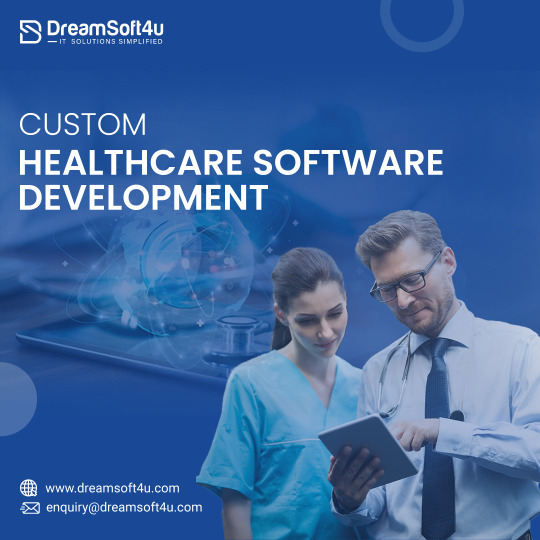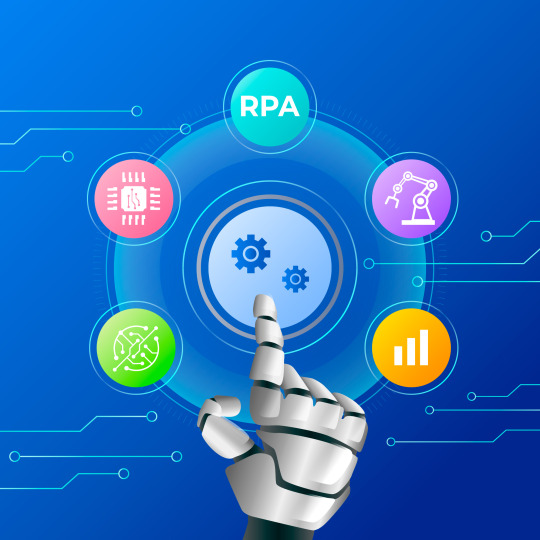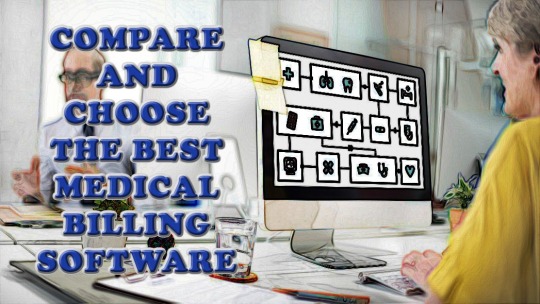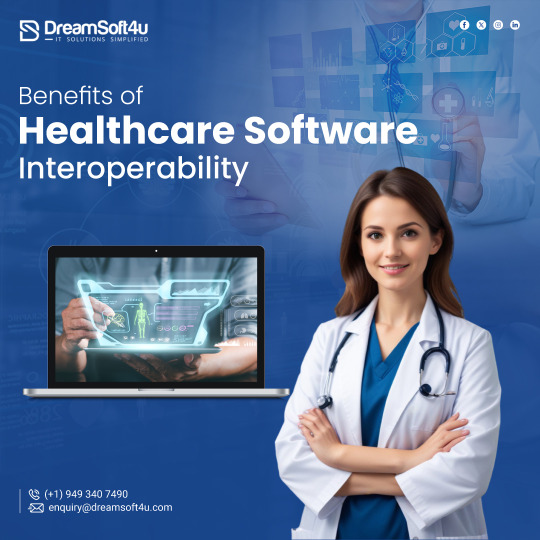#healthcare software companies
Text

Custom healthcare software development services can be defined as designing, developing, deploying, and maintaining software for medical professionals so that they can seamlessly interact with patients, better use medical data analytics, and access patient health records. It helps healthcare providers in offering better patient experiences at cost-effective pricing.
#healthcare software solutions#healthcare software development#healthcare software companies#custom healthcare software development
0 notes
Text
OWEBEST: Your Partner in Healthcare Software Development Services and Solutions
Healthcare Company
Making software for health companies is hard because they deal with classified health information . They want to build apps that keep this data safe and private but also use it to help people get healthier. In the medical world, making software is always changing. After the lockdown, there's a big need for healthcare software. But most medical groups don't know much about it.

Good healthcare software should have some important things, like
Way to see all your patients in one place.
More information about patients, from their health to how they like to talk.
A way to connect with patients better.
A way to make better choices about their care by working together on a health plan.
If you're a healthcare startup looking to use digital tools to improve patient care and how you run your business, this article can help. We will talk about the world of healthcare software development services and everything you need to succeed with your startup.
If you're interested in developing your Healthcare Company please click on the link to get in touch with us now.
#healthcare#software development#business#startup#networking#healthcare software companies#digital tools#development services#growth business#healthcare software development#owebest#Medical software companies
0 notes
Photo

Types of Healthcare Software
There are several benefits to utilizing all technological advancements in the healthcare field. Technology directly affects human health and lifespan, which is a unique benefit. The technology revolution that is about to transform healthcare will present unforeseen opportunities.
What Type Of Software Is Used In Healthcare?
There is no standard medical software type; each case is unique and serves different purposes. Let’s see various types of software in the healthcare sector, Let’s look into it.
1. Appointment Booking Software
2. Clinical Trial Management Software
3. E-prescriptions Software
4. Health Tracking Apps
5. Healthcare CRM Software
6. Hospital Management Systems (HMS)
7. Medical Billing Software
8. Medical Database Software
9. EHR / EMR Software
10. Medical Diagnosis Software
Read Originally Published Blog: https://evincedev.com/blog/types-of-healthcare-software-development/
#hospital management software#healthcare software development#healthcare software development company#healthcare software companies#healthcare applications#digital healthcare solutions#healthcare softwares
0 notes
Text

Telemedicine App Development: Types, Features, Technologies, Benefits, and Cost!
Telemedicine app development has made healthcare services more comfortable and effective for people worldwide. We tried to give you a blog that covered the different types of telemedicine apps and their features, costs, and benefits. If you're planning to create a telemedicine app, keep these aspects in mind.
Dash is a well-known healthcare development company that has pioneered healthcare software development.
#Healthcare Software#Epic Healthcare Software#Healthcare Software Companies#Top Healthcare Software Companies In Usa#Healthcare Web Application Development
0 notes
Text
The advantages of Cellma's Referral Management for Workplace Occupation Health
There are specific procedures that must be followed when an employee needs sick or absent leave, or documentation relating to either. This blog post will discuss how Cellma can help to improve workplace occupational health and safety protocols by streamlining the process using the referral management module.
The ability to demonstrate that an employee is Fit to Work is essential to following proper occupational health and safety procedures at work. Employees are referred to qualified Occupational Health and Safety practitioners who are either employed by the mentioned place of employment or privately run in order to demonstrate this.
The following are a few of the reasons why an employee might be referred to such professionals:
As was previously stated, it is necessary to demonstrate your fitness for work (you can do this as a new employee or at any point during your employment), as the employer may want to make sure that the work you are doing and the environment in which it is being done has no negative effects on your health.
An examination may be conducted in response to illness or persistent absences from work in order to confirm the employee's "sick leave."
In response to ongoing absences from work brought on by accidents or any other circumstance necessitating sick leave
any medical conditions that impact behavior, performance, or attendance at work.
HOW IS CELLMA USEFUL?
Managers or HR professionals can submit a customized form or email a request to the occupational health and safety service using Cellma's Referral Management module. In some cases, self-referrals can also be managed through our referral portal. Upon receipt of the referral form or request, it will be evaluated, logged, and, depending on the services requested, an appointment will be made for the requesting party.
Documentation
For easy access by medical professionals, all available forms, letters, and documentation are explicitly customized for the organization and stored within Cellma.
Patient Background
The patient's history, which covers everything:
taken medications
assessments and inquiries made by a doctor or doctors
medical notes
Blood tests
Vi tals
The patient's summary contains any medical actions noted during the patient's visit, enabling the occupational health practitioner to review previous visits or the patient's history of illness or absence.
Occupational health evaluations
For the practitioner to conduct and record the results required to make an informed decision for the employee, customized assessments that are particular to Occupational Health Services can be included.
Proper communication is essential if the occupational health practitioner is to fully comprehend what is required of the employee or the organization. This can be done by sending emails, texts, or chat software between the manager or HR and the doctor.
Given the size of the workforce, consistent reporting every week or month is required to account for all services provided by the medical practitioner and the caliber of those services. Contact us for more details on how Cellma can streamline your workplace occupational health services.
#occupational health#cellma#electronic medical records#referral management software#healthcare software companies#Healthcare
0 notes
Text

#Interoperability#emr#healthcare#ehr#telemedicine#telehealth#healthcare software companies#healthcare software solution
1 note
·
View note
Link
Read hear the factors of healthcare software development uplifting ROI of healthcare organizations.
Get in touch with a telemedicine app development solution provider to help you get the best healthcare software solutions.
#telemedicine app development#telemedicine app development solution#telemedicine app development in usa#telemedicine app development roi#healthcare software solution#Healthcare Software Solutions#healthcare software companies#healthcare software development#healthcare software#Healthcare Software Development Companies#ROI in Healthcare#Return on Investment#healthcare software development roi#roi in healthcare software development#telehealth app development
1 note
·
View note
Text
Tips for Selecting the Right Web Development Company: A Guide to Help Businesses Choose

In today’s digital world, having a well-fortified online presence is climacteric for businesses of all sizes. A well-designed and functional website is the foundation of any online strategy, and web development plays a vital role in creating a website that effectively represents a business and engages its target audience. However, selecting the best web development company in Noida can be a daunting task with the plethora of options available in the market. In this article, we will discuss 12 tips that can help businesses in selecting the right web development company to meet their specific needs and requirements.
Read more: https://medium.com/@liveupxprivate/tips-for-selecting-the-right-web-development-company-a-guide-to-help-businesses-choose-4addf2b2a1b6
#digitalmarketing#webdesign#seo agency#digital marketing#online marketing#liveupx#website development#enterpreneur#enterprenuership#healthcare#seo services#saas software#software company
14 notes
·
View notes
Text
Unlocking Efficiency and Innovation: The Role of Robotic Process Automation (RPA)

In today's fast-paced and competitive business environment, organizations are constantly seeking ways to improve efficiency, reduce costs, and increase productivity. Robotic Process Automation (RPA) has emerged as a powerful tool that can help businesses achieve these objectives.
What is Robotic Process Automation (RPA)?
Robotic Process Automation (RPA) is a technology that allows businesses to automate repetitive, rule-based tasks. It uses software robots, also known as "bots," to mimic human actions and interact with digital systems. These bots can log into applications, navigate through screens, input data, and complete tasks just like humans would.
The Role of RPA in Business:
RPA can be used to automate a wide range of tasks across various industries and departments. Here are some examples:
Finance and Accounting: Automating tasks such as accounts payable and receivable, invoice processing, and financial reporting.
Customer Service: Automating tasks such as answering FAQs, resolving customer inquiries, and processing orders.
Human Resources: Automating tasks such as onboarding new employees, processing payroll, and managing benefits.
IT: Automating tasks such as provisioning accounts, managing user access, and deploying software updates.
Impact of RPA on Businesses:
Implementing RPA can offer numerous benefits to businesses, including:
Increased efficiency and productivity: RPA can automate time-consuming and tedious tasks, freeing up employees to focus on more strategic and value-added activities.
Reduced costs: RPA can help businesses save money on labor costs, as well as reduce errors and compliance risks.
Improved accuracy and compliance: RPA bots are programmed to follow specific rules and procedures, which can help to improve accuracy and compliance with regulations.
Enhanced process visibility and control: RPA provides businesses with a clear view of their processes, which can help them identify and address bottlenecks.
Improved customer satisfaction: RPA can help businesses improve customer satisfaction by automating tasks such as order processing and customer service interactions.
RPA Services:
Implementing RPA successfully requires a partner with expertise in the technology and a deep understanding of business processes. A comprehensive RPA solution should include the following services:
Document AS-IS Process: This involves mapping out the existing process to identify areas for automation.
Design & Development of Bots, workflows, and forms for process automation: This includes designing and developing the software robots that will automate the tasks.
Bot license (We will use the appropriate underlying technology): This provides access to the software robots and the underlying technology platform.
Infrastructure: This includes setting up the necessary infrastructure to support the Robotic Process Automation (RPA) solution.
Production Deployment of the Bots: This involves deploying the bots to production and monitoring their performance.
RPA support: This includes ongoing support for the RPA solution, such as troubleshooting and maintenance.
Test & Deploy bots to production: This involves testing the bots in a production environment and making any necessary adjustments before they are deployed to full production.
Configuration data changes: This involves making changes to the configuration data of the bots as needed.
Password updates: This involves updating the passwords of the bots as needed.
Errors in executing the Bots: This involves resolving errors that occur during the execution of the bots.
Determining the “root cause” of a recurring issue or incident & recommendations: This involves identifying the root cause of a recurring issue or incident and recommending solutions to prevent it from happening again.
Infrastructure/application related issues: This involves resolving issues with the infrastructure or applications that the bots are interacting with.
Conclusion:
RPA is a powerful technology that can have a significant impact on businesses of all sizes. By automating repetitive tasks, RPA can help businesses improve efficiency, reduce costs, and increase productivity. However, it is important to choose a reputable Robotic Process Automation (RPA) companies with the expertise and experience to help you implement a successful RPA solution.
Ready to embrace the power of RPA?
Contact us today to learn more about how RPA can help your business achieve its goals.
#robotic process automation#robotic process automation rpa#rpa automation#robotic process automation software#rpa software#robotic process automation companies#robotic process automation technology#robotic process automation in healthcare#robotic process automation in banking#rpa solution#robotic process automation for finance#process automation solution#robotic process automation services#robotic process automation for insurance#rpa system#what is rpa automation#robotic process automation solution#robotic process automation benefits#robotic process automation consulting#robotic process automation consultant#rpa service provider#rpa consulting services
2 notes
·
View notes
Text
Compare and Choose the Best Medical Billing Software

Medical billing software is a medical technology solution that automates medical billing tasks and also contributes to optimizing business management processes. It is a contemporary automation of conventionally manual practices like claim management and medical billing. There is a list of billing software used in medical practice; however, the best medical billing software depends upon the requirements and your specific needs. Excellent workable and famous medical billing software options are available in the market. However, choosing the right medical billing software helps healthcare providers optimize their revenue, improve reimbursement rates, and contribute to building a sustainable medical practice. Understanding selecting the best software to quench your needs starts from your office. The best choice of software is one that helps you to schedule your appointments and automatically enter the correct information of patients. The article will discuss the different factors to consider while choosing the right medical billing software for your medical practice. Read More...
For further details and daily updates, Follow us on LinkedIn or Visit.
#medical billing outsourcing#medical billing service companies#healthcare#medical billing solutions#hospital#medical billing florida#physician#cardiology#medical billing software
2 notes
·
View notes
Text
KYC API Provider in UK
Stay secure and protect your business from financial fraud using the KYC API. KYC helps verify business identities and facilitate fast customer onboarding for almost every UK industry's business. We are one of the most trusted KYC API providers in the UK and instantly deliver the most matching results for banking, finance, cryptocurrency, insurance, fintech, healthcare, and online gaming sectors.

#kyc verification#kyc#kyc api#KYC Solution Provider UK#KYC API Providers#KYC Companies#KYC Software#banking#finance#healthcare#insurance#cryptocurrency#gaming#fintech#UK KYC
3 notes
·
View notes
Link
As per the Market Data Forecast report, the global healthcare prescriptive analytics market is likely to grow at a CAGR of 17.4% from 2022-2027. Organizations use prescriptive analytics to predict outcomes and to identify the logical course of action.
Prescriptive Analytics of user-generated data in the healthcare domain indicates what is likely to occur and suggests the best actions to avoid and mitigate risks. To know more about how healthcare is optimizing its operations with prescriptive analytics, read our blog, 'How To Successfully Use Prescriptive Analytics To Optimize Healthcare Delivery?'
(Blog Link in comments)
2 notes
·
View notes
Text

Located in Bengaluru, India, Tech Avtar is a leading Generative AI Development Company with a team of experts in AI product development, Generative AI, AI Automation Software, Cloud, and DevOps services. We also specialize in AI and Blockchain Development. Discover more about our services by contacting us at [email protected].
#top web development services company#software solution company#Affordable product design service company#cloud and devops services in 2024#Best analytic solutions company#Best Tech Blogs in 2024#Creating an AI-Based Product#best ai chat bot development company#healthcare custom software development#ERP Management System#WhatsApp Bulk Sender#software development for healthcare
0 notes
Photo

Healthcare Software Development
No industry is trailing behind in significant technological advancement, and if we say “healthcare industry” is the most advanced after the pandemic. The healthcare sector uses all the necessary technologies to stay on top, including software streamlining staff management, improving patient care quality, and enhancing customer service.
There are several benefits to utilizing all technological advancements in the healthcare field. Technology directly affects human health and lifespan, which is a unique benefit. The technology revolution that is about to transform healthcare will present unforeseen opportunities.
Read Originally Published Blog: https://evincedev.com/blog/types-of-healthcare-software-development/
#hospital management software#healthcare software development#healthcare software companies#healthcare applications#digital healthcare solutions#types of healthcare software
0 notes
Text

Woven Connect- Home Care and Deliver Health Services Conveniently!
The Woven Connect app offers nurses and caregivers a handy tool that delivers patients the best home care services. If you have a similar idea or want to build a similar application, then we can be a resourceful help to transform your idea into a successful application.
#HealthcareMobileApp#Healthcare Software Company#Healthcare Software Companies#Healthcare App Development Services
0 notes
Text

How Healthcare Interoperability Benefits Providers?
Healthcare interoperability helps not just patients, but also providers a great deal. Benefits of interoperability in healthcare, specifically focusing on the positive impact it has on healthcare providers. Learn how seamless information sharing between different healthcare systems empowers providers to deliver better care, improve efficiency, and ultimately enhance patient outcomes.
#mobile app development#healthcare technology#health information technology#custom web development company#healthcare software development company#benefits of interoperability in healthcare#healthcare software solutions
0 notes